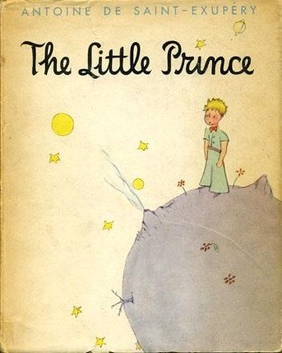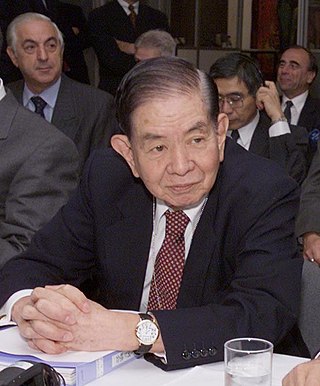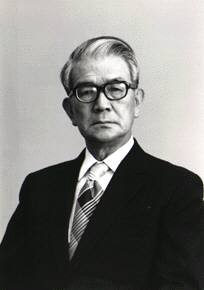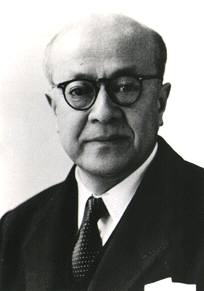
Werner Herzog is a German filmmaker, actor, opera director, and author. Regarded as a pioneer of New German Cinema, his films often feature ambitious protagonists with impossible dreams, people with unusual talents in obscure fields, or individuals in conflict with nature. His style involves avoiding storyboards, emphasizing improvisation, and placing his cast and crew into real situations mirroring those in the film they are working on.

The Little Prince is a novella written and illustrated by French writer and military pilot Antoine de Saint-Exupéry. It was first published in English and French in the United States by Reynal & Hitchcock in April 1943 and was published posthumously in France following liberation; Saint-Exupéry's works had been banned by the Vichy Regime. The story follows a young prince who visits various planets, including Earth, and addresses themes of loneliness, friendship, love, and loss. Despite its style as a children's book, The Little Prince makes observations about life, adults, and human nature.

Masaru Hayami was a Japanese businessman, central banker, the 28th Governor of the Bank of Japan (BOJ) and a Director of the Bank for International Settlements (BIS).

The Japanese asset price bubble was an economic bubble in Japan from 1986 to 1991 in which real estate and stock market prices were greatly inflated. In early 1992, this price bubble burst and Japan's economy stagnated. The bubble was characterized by rapid acceleration of asset prices and overheated economic activity, as well as an uncontrolled money supply and credit expansion. More specifically, over-confidence and speculation regarding asset and stock prices were closely associated with excessive monetary easing policy at the time. Through the creation of economic policies that cultivated the marketability of assets, eased the access to credit, and encouraged speculation, the Japanese government started a prolonged and exacerbated Japanese asset price bubble.

The Praemium Imperiale is an international art prize inaugurated in 1988 and awarded since 1989 by the Imperial family of Japan on behalf of the Japan Art Association in the fields of painting, sculpture, architecture, music, and theatre/film.

The Lost Decades are a lengthy period of economic stagnation in Japan precipitated by the asset price bubble's collapse beginning in 1990. The singular term Lost Decade originally referred to the 1990s, but the 2000s and the 2010s have been included by commentators as the phenomenon continued.
Richard Andreas Werner is a German banking and development economist who is a university professor at University of Winchester.

Toshihiko Fukui is a Japanese economist and central banker. He was the 29th Governor of the Bank of Japan (BOJ) and a Director of the Bank for International Settlements (BIS).

Tadashi Sasaki was a Japanese central banker, and 22nd Governor of the Bank of Japan (BOJ).
Yasuo Matsushita was a Japanese businessman, central banker, the 27th Governor of the Bank of Japan (BOJ) and a Director of the Bank for International Settlements (BIS).
Yasushi Mieno was a Japanese businessman, central banker, the 26th Governor of the Bank of Japan (BOJ) and a Director of the Bank for International Settlements (BIS).

Satoshi Sumita was a Japanese businessman, central banker, the 25th Governor of the Bank of Japan (BOJ) during a period in which Japan became the world's largest creditor nation.

Haruo Maekawa, also romanized as Mayekawa, was a Japanese businessman, central banker, the 24th Governor of the Bank of Japan (BOJ).

Teiichiro Morinaga was a Japanese businessman, central banker, the 23rd Governor of the Bank of Japan (BOJ).

Makoto Usami was a Japanese businessman, central banker, the 21st Governor of the Bank of Japan (BOJ).

Masamichi Yamagiwa was a Japanese businessman, central banker, the 20th Governor of the Bank of Japan (BOJ).

Eikichi Araki was a Japanese businessman and a central banker. He was the 17th and 19th Governor of the Bank of Japan (BOJ).

Hisato Ichimada was a Japanese banker and politician who served as Minister of Finance from 1954 to 1956 and 1957 to 1958, and as Governor of the Bank of Japan from 1946 to 1954.

Viscount Keizō Shibusawa was a Japanese businessman, central banker, philanthropist and folklorist. He was the 16th Governor of the Bank of Japan (BOJ).
Window guidance or informal guidance, is an informal policy instrument used to regulate the supply of credit in an industry or sector. Window guidance typically involves the use of benevolent compulsion in order to regulate the supply of credit as a way to achieve policy targets such as sustainability. Window guidance involves the use of monetary policy instruments including lending quotas as an informal way to subsidize or regulate the volume of credit in an industry or financial sector. Window guidance is often associated with the Bank of Japan's policies during the Japanese economic miracle, although similar policies have been widely used in the post WWII era in other Asian countries, as well as Western European countries and Canada.














